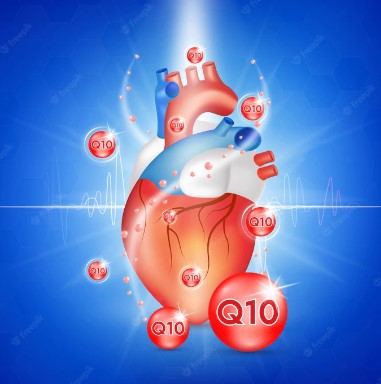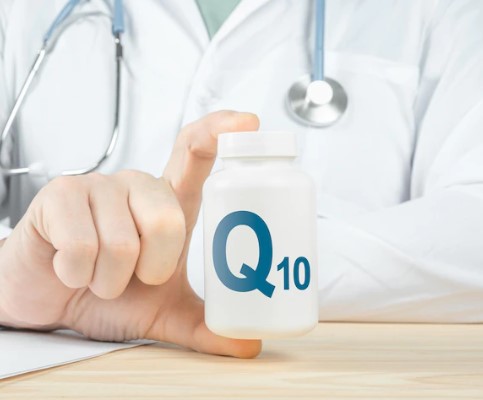
Coenzyme Q10 (CoQ10) is an antioxidant that the body produces naturally , responsible for transforming food into energy, protecting the heart and rejuvenating tissues, in the form of ATP (adenosine triphosphate). Our cells use CoQ10 for growth and maintenance of the body, however, the body's CoQ10 levels decrease as you age.
Coenzyme Q10 is also a important antioxidant that improves the function of the cardiac muscle and prevents lack of cellular oxygenation. CoQ10 levels have been found to be lower in people with certain conditions, such as heart disease, and in those taking cholesterol-lowering medications such as statins.
It is important to keep in mind that low levels of Q10 can contribute to hypertension, heart attacks, angina, depression of the immune system, periodontal disease, lack of energy and obesity among other disorders.

Other causes of CoQ10 deficiency may be
1. Mitochondrial diseases.
2. Nutritional deficiencies, for example a vitamin B6 deficiency.
3. Increased tissue CoQ10 needs due to disease.
4. Oxidative stress as a result of aging.
5. Genetic defects that lead to problems with the utilization or synthesis of CoQ10.
HOW TO INCREASE YOUR COENZYME Q10 LEVELS
CoQ10 can be found in meats, fish and nuts such as: seeds, legumes, vegetables, fruits and whole grains. However, the amount of CoQ10 found in these dietary sources is not enough to significantly increase the body's CoQ10 levels.
CoQ10 dietary supplements They are available in the form of capsules, chewable tablets, liquid syrups and intravenously. CoQ10 may help prevent or treat certain heart conditions and migraines. To obtain therapeutic or preventive effects, a supplement of 30-50 mg per day can be taken from the age of 40.
It is a safe supplementation, since there are no known negative side effects at these doses, but a nutrition doctor can indicate the most appropriate dose for each person depending on the case. 
BENEFITS OF COENZYME Q10
- Coenzyme Q10 promotes blood pumping, reduces vascular fat, blood pressure and LDL cholesterol.
- It stimulates cell and tissue renewal , allowing the proper functioning of vital organs such as the liver, kidneys, pancreas, heart and brain.
- The areas where it is most used for its antioxidant and repairing power is in the fight against aging. This repair power acts above all on plasma lipoproteins.
- Topically it is effective against wrinkles and dark spots on the skin.
- The great cellular energy contribution of Q10 also improves cardiovascular health and it is a great ally for athletes because it improves their performance.
- In moderate doses it can improve intellectual performance due to its protective effect on neurons.
- In people with diabetes, It reduces fasting blood glucose and regulates glucose levels. Likewise, and due to better arterial circulation, it reduces the frequency of migraines and fatigue.
It is important to be clear that when using this type of supplements, do not self-medicate but rather have advice from an expert, since it is not the same for all bodies and can generate contraindications.
Sources
Coenzyme Q10
Diseases associated with coenzyme Q10 deficiency
Coenzyme Q10: should I take a supplement?
Carolina Cardona Valencia, Social Communication
For Satori Beauty

